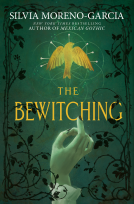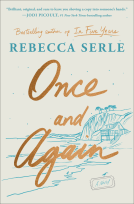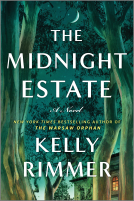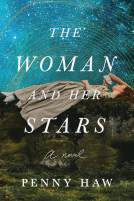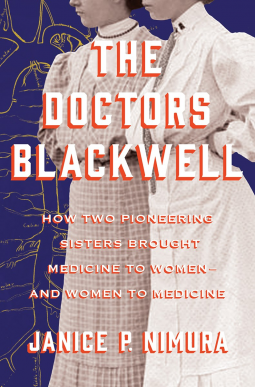
The Doctors Blackwell
How Two Pioneering Sisters Brought Medicine to Women and Women to Medicine
by Janice P. Nimura
This title was previously available on NetGalley and is now archived.
Send NetGalley books directly to your Kindle or Kindle app
1
To read on a Kindle or Kindle app, please add kindle@netgalley.com as an approved email address to receive files in your Amazon account. Click here for step-by-step instructions.
2
Also find your Kindle email address within your Amazon account, and enter it here.
Pub Date Jan 19 2021 | Archive Date Dec 31 2020
Talking about this book? Use #TheDoctorsBlackwell #NetGalley. More hashtag tips!
Description
“Deftly, with a keen eye, Janice P. Nimura has resurrected Elizabeth and Emily Blackwell in all their feisty, thrilling, trailblazing splendor.”—Stacy Schiff
The world recoiled at the notion of a woman doctor, yet Elizabeth Blackwell persisted—in 1849, she became the first woman in America to receive an MD. Her achievement made her an icon—“I am convinced that a new & nobler era is dawning, for Medicine,” she wrote—but her sister Emily, eternally eclipsed, was the more brilliant physician. Together they founded the first hospital staffed entirely by women, in New York City.
Both sisters were tenacious and visionary, but their convictions did not always align with the emergence of women’s rights—or with each other. “Doubt is disease,” Elizabeth insisted. They prevailed against fierce resistance from the male establishment, moving among Britain, France, and America during a tumultuous time of scientific discovery and civil war. This major new biography celebrates two complicated pioneers who exploded the limits of possibility. As Elizabeth predicted, “a hundred years hence, women will not be what they are now.”
About the Author:
Janice P. Nimura is the winner of a 2017 National Endowment for the Humanities Public Scholar award and the author of Daughters of the Samurai: A Journey from East to West and Back, a New York Times Notable Book.
Advance Praise
“’I wish some skillful pen would produce an interesting old maid’s life,’ sighed 17-year-old Elizabeth Blackwell in 1838, at a time when that idea was as much a contradiction in terms as "female physician." Janice Nimura has splendidly granted the adolescent wish. Deftly, with a keen eye, she has resurrected Blackwell and her physician sister Emily in all their feisty, thrilling, trailblazing splendor.” - Stacy Schiff, author of The Witches
“The Blackwell sisters took on the medical establishment and won. They are heroines, not just of their time, but for every age. Their incredible story has been crying out to be told, and in Janice Nimura they have the ideal biographer. The Blackwell’s live and triumph again.” - Dr. Amanda Foreman, author of The Duchess
“Janice Nimura has gifted us with more than a splendid history of the Blackwell sisters. Gripping, vividly written, and moving, it is also a surprisingly timely history of the misogynist, limited, still evolving Anglo-American medical profession.” - Blanche Wiesen Cook, author of Eleanor Rosevelt: Volume I-III
“All doctors and all patients owe a debt to these eccentric determined brilliant characters, Elizabeth and Emily Blackwell, who found their way across the strange and bloody landscape of nineteenth-century medicine, and transformed it forever, all brilliantly conjured in Janice Nimura's wonderful book.” - Dr. Perri Klass, author of A Good Time to be Born
Available Editions
| EDITION | Hardcover |
| ISBN | 9780393635546 |
| PRICE | $27.95 (USD) |
Average rating from 16 members
Featured Reviews
 Librarian 455492
Librarian 455492
What distinguishes this book from other non-fiction historical accounts is the marriage of readability and meticulous documentation. The author manages deft storytelling to make the reader wonder, "how will this ever work out," a neat trick when the outline of the sisters' achievements is well known. Bonus: the Blackwell family and acquaintances feel like an intellectual movers and shakers list from the antebellum American north and Europe...names are dropped! We see you Florence Nightingale!
 Caren N, Librarian
Caren N, Librarian
While the focus of this book is on the two Blackwell sisters who became the first women to receive medical degrees in the United States, it also touches on a lot of what was going on in their world, nineteenth-century United States and Europe. The reader will meet many of the movers and shakers of that era and come away with a real feel for the challenges an intellectual woman faced in that time. The Blackwell family moved from Bristol in England to New York in the early nineteenth century. The family, I gather, was upper middle class because the father owned a sugar refining plant in England which burned down. He began anew there, but as an abolitionist, felt ambivalent about this profession, knowing that Caribbean sugar plantations used slave labor. He brought his large family to the U.S. for new opportunity. He moved the family from New York to Cincinnati, then considered the "West", and soon thereafter died. This left the family in something of a financial bind so that all the siblings old enough to, needed to seek work. For the girls, teaching was the best option. Early in the Blackwell sisters' lives, one of their grandmothers had openly revealed her regret at being married and said if she had it to do over, she would not have married "Grandpapa". Interestingly, none of the five girls in the family ever married. Two of the three boys did, but they married strong, intellectual women. By not being married and needing to care for a family, the girls were more free to follow their intellectual pursuits. Elizabeth comes across as brilliant, but very prickly. She apparently sought to become a degreed physician more for the challenge and acclaim than from a desire to practice medicine. Emily, who was six years younger, was actually interested in science and received encouragement from Elizabeth to repeat her feat. Thereafter, Elizabeth seemed to have the ideas and start projects only to let Emily follow through and do the hard work. After receiving their degrees, both women went to Europe for further training. While working in a maternity hospital for indigent women in Paris (as a sort of intern), Elizabeth contracted an infection in one eye and lost that eye. I was really struck at how much traveling the Blackwell siblings were able to do. (For example, Elizabeth went to a sort of spa near the Polish border to try to heal her diseased eye, but without antibiotics, the "water therapy" there did no good. ) It was also interesting that they could choose to just go to and live in European countries. Imagine the paperwork that would entail these days. Some of the Blackwell siblings ended up returning to England, making their lives there. In the end, Elizabeth was one of them. She and Emily had started a women and children's hospital and a medical school for women, but Emily was left to run them in the end. Another interesting thing was the ease with which Elizabeth was able to go to an orphanage and come home with a young girl whom she raised as a sort of helpmeet/servant. I was also interested to read of how women were perceived in the nineteenth century and how limited their options were. It makes you realize how extraordinary the Blackwell sisters' achievements were. You can also see clearly that they were able to achieve all they did because they didn't marry. Marriage was no great deal for women then. I was sometimes annoyed with Elizabeth's condescending and opinionated tone. She heartily disapproved of birth control (an attitude common then), but she had never had to bear child after child, at risk to her life and health. I was surprised she could have worked with women and not intuited that. Emily came across as a more sympathetic character. She seemed more down to earth and perhaps dogged in her approach to life. All of the Blackwells were obviously well educated and quite intelligent. They met so many of the notable people of their time. (Elizabeth even met Abraham Lincoln.) I found this book to be fascinating and well-written. The author included a nice bibliography and notes, so the interested reader can explore further. I was struck by the extensive letters and journals the Blackwells left behind, certainly a boon to the author. (This is something that actually concerns me about modern times. I really doubt emails and tweets will survive the years. How will historians in the future 'hear' the voices and learn of the lives of everyday people? In fact, I was interested in reading this book after I heard the author on the PBS Newshour talking about journaling:
https://www.pbs.org/newshour/show/the-value-of-writing-our-way-through-a-tumultuous-2020 )
I am grateful to the publisher and Netgalley for being able to read an advance review copy of this book in exchange for an honest review.
This was everything you want in a biography. Extensively researched and well-written, the history of the Blackwells, and 19th century medicine as whole, is presented in an extremely readable fashion. The narrative weaves together many big names of the times, deftly discusses the intersections of the women’s suffrage and abolitionist movements, and provides a compassionate, though unvarnished, history of these first woman MDs.
While the accomplishments of the Blackwells sisters are impressive, Nimura doesn’t whitewash or editorialize the ways in which they benefited from immense privilege, even by 19th century standards. The sisters were marketed as progressive intellectuals, but the historical record shows that they were happy to compromise their principles of abolition or women’s rights when it served their higher purpose. Working with Simms, training on slave owning estates, not supporting suffrage, intellectualism, classism, and not exactly lifting up other women behind them- the family isn’t the perfect paragons of progress and readers will appreciate that nuance.
For a thorough history of medicine, social movements, and the women who paved the way for future MDs, this is a great biography.
Readers who liked this book also liked:
Marie Bostwick
Historical Fiction, Literary Fiction, Women's Fiction
